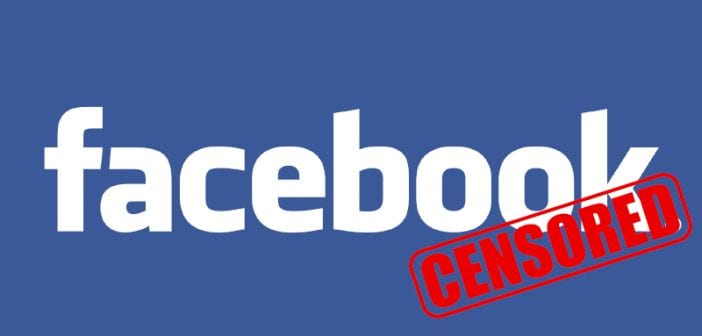Pro-Lifers have previously voiced concerns about Twitter’s suppression of content from Pro-Life groups, and now Facebook appears also to be censoring Pro-Life content. Recently, Pro-Life advocate Obianuju Ekeocha called attention to an uncontroversial article profiling her Pro-Life work that Facebook flagged and blocked Ekeocha from posting so that others can view the article.
Ekeocha said in a tweet that the article, titled “African Pro-Life Leader Bashes Abortion: We Must ‘Respect Human Life From Womb to Tomb’” was censored because Facebook claimed the content “goes against Facebook Community Standards.” She included a screenshot of the message she received, which stated that she could post the article but no one else would be able to view the content.
Ekeocha has gained international attention for her Pro-Life work to expose the anti-Life bias imposed on many parts of Africa by foreign aid organizations. Ekeocha, who is from Nigeria and now lives in the United Kingdom, has become an internationally acclaimed author and speaker in defense of traditional values that are being subverted by anti-Life campaigns aimed at Africa. Ekeocha founded Culture of Life Africa and wrote a book about her advocacy, “Target Africa: Ideological Neo-colonialism of the Twenty-first Century.”
Ekeocha gained international attention when she appeared on many prominent news channels speaking out against Canadian officials’ horrific mischaracterization of abortion as a “tool to end poverty.” Addressing this radical anti-Life sentiment, Ekeocha noted polling suggests that in some African countries more than 90 percent of people are Pro-Life. Ekeocha also noted the conflation of contraception and abortion by aid groups and the dangers that carries. She said, “Are we talking about contraception? Are we talking about abortion? They are two different things. If we are talking about abortion, well, I don’t think that any Western country has a right to pay for abortions in an African country, especially where the majority of people don’t want abortion.”
The article Ekeocha attempted to share on Facebook profiled her work and a talk she gave at Georgetown University about the Pro-Life values held by many Africans. She said, “The African people have a culture of life.” She added, “The recognition of human life from the womb to the tomb is a common thread that runs through many tribes and towns of Africa.”
This Pro-Life ethic common in many parts of Africa, including the village in Nigeria where she grew up, is at odds with powerful non-governmental organizations pushing population control programs that include abortion. Organizations pushing an anti-Life agenda, what Ekeocha calls neo-colonialism, receive more donations than programs focused on education, access to health care, and clean water initiatives. Ekeocha concluded her talk saying, “Abortion is a direct attack on human life and human dignity. This is why Africa rejects it.” She added, “From Nairobi to New York…from Africa to America, human life begins at conception. Every life deserves protection. Every single life is a life worthy of respect.”
Ironically, Facebook’s recent suppression of this article profiling Ekeocha’s cause underscores the very bias against which she has spoken. Facebook, run by Silicon Valley elites, has determined that the social media giant will not tolerate the sharing of perspectives with which politically anti-Life executives disagree. While paying lip service to “diversity,” Facebook censors Pro-Life viewpoints.
Other Pro-Life organizations have experienced what they believe is suppression at the hands of Facebook and other social media platforms. Oftentimes, the suppression is not as overt as blocking an article or video, as happened in Ekeocha’s case, but Pro-Life and conservative groups are voicing concern about “shadow banning.” New Busters explains that shadow banning occurs when a social platform manipulates algorithms to prevent a group or individual’s content from showing up in their follower’s news feed. Although not direct censorship, this tactic can effectively quash content that is deemed controversial by the social media platform operators.
Sometimes there is overt censorship, as when Facebook has deleted videos from Prager U and the Daily Caller. When confronted about videos that had been arbitrarily deemed “hate speech,” a spokesperson for Facebook claimed the content had been removed “mistakenly” and allowed posting. The effort by social media platforms to silence prominent Pro-Life voices is far too thorough to be a mistake. In this environment, Pro-Lifers must amplify each other’s voices and reach people around the world, even if the anti-Life moderators try to interfere.


